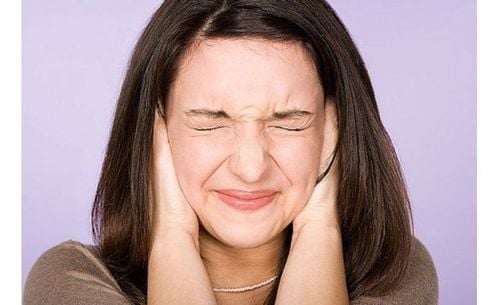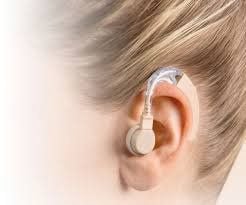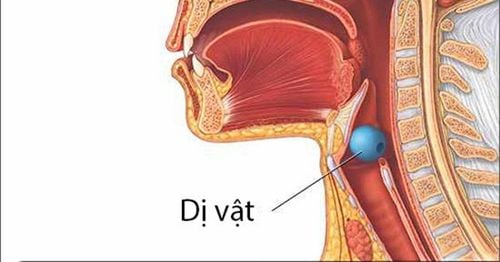This is an automatically translated article.
Sensitivity to sound is a common syndrome that, although not life-threatening, causes many obstacles to the patient's life. Therefore, it is necessary to have basic knowledge to detect diseases early or prevent potential risks.
1. What is sensitivity to sound?
Sensitivity to sound is a syndrome manifesting as a central nervous system disorder that causes the person to have an abnormal response to normal sounds manifesting as fear of sounds, fear of noise even though it is the smallest sounds. The study found that about 29% of people with this syndrome tend to become angry when they hear noise and another 17% get angry at objects.
This syndrome is sensitive to only a few selected sounds. People with this syndrome will be extremely uncomfortable with seemingly harmless sounds such as pen clicks, breathing sounds, chewing sounds, etc. may feel anxious, angry, panicked, unable to stand it. , which can cause extreme or angry actions, flee or attack. From there, they begin to distance themselves from social interactions and gradually reduce their relationships with people around them. isolation, depression, and obstacles interfere with daily life.

Nhạy cảm với âm thanh là hội chứng sợ âm thanh và tiếng ồn
2. What causes sound sensitivity syndrome?
Through a number of studies to date, the exact cause of sound sensitivity syndrome is not known. But this is definitely not a hearing problem. Doctors believe that this disease occurs due to both psychological and physical reasons. This disease is often related to the way sound affects the brain and activates the body's unconditioned reflexes.
There are many risk factors for sound sensitivity syndrome such as:
Obsessive-compulsive disorder (OCD) Anxiety disorder Tourette's syndrome
3. Manifestations of sensitivity to sound
When hearing noises, people with sound sensitivities may get goosebumps, wanting the noise to stop immediately. This feeling will happen often when hearing sounds that other people barely notice.
Manifestations of people with sound sensitization include:
If there is a mild, visible reaction: Anxiety, irritability, wanting to run away In more serious cases, sound triggers can cause : rage, anger, panic, fear, distress, desire to kill or stop whatever is causing that noise, suicidal ideation,...

Một số âm thanh có thể khiến người bệnh cảm thấy đau khổ, sợ hãi, hoảng loạn muốn tự tử,...
4. Is sensitivity to sound dangerous?
The most common types of sounds that trigger Misophonia are:
Heavy breathing or nose sounds, affecting about 64.3%. The sound of eating and drinking affects about 81%. The sound of fingers or hands affects about 59.5%. Some physical activity affects about 11.9%. Other sounds that cause the syndrome are throat clearing, lip smacking, writing, rustling paper. The ticking of clocks, the slamming of car doors, and the chirping of birds, crickets, or other animals. Sound sensitivity, although not life-threatening, causes many obstacles to the patient's life.
5. Diagnosis and treatment
There is no specific way to diagnose sound sensitivity. Diagnosis is mainly based on the patient's question, symptoms, appearance,...
Sensitivity to sound cannot be completely cured. However, it can be controlled in the following ways:
The best way to manage this disease is to limit the incoming sound using headphones or specialized devices.

Hạn chế âm thanh được truyền đến tai bằng tai nghe hoặc các thiết bị chuyên dụng
Please dial HOTLINE for more information or register for an appointment HERE. Download MyVinmec app to make appointments faster and to manage your bookings easily.













